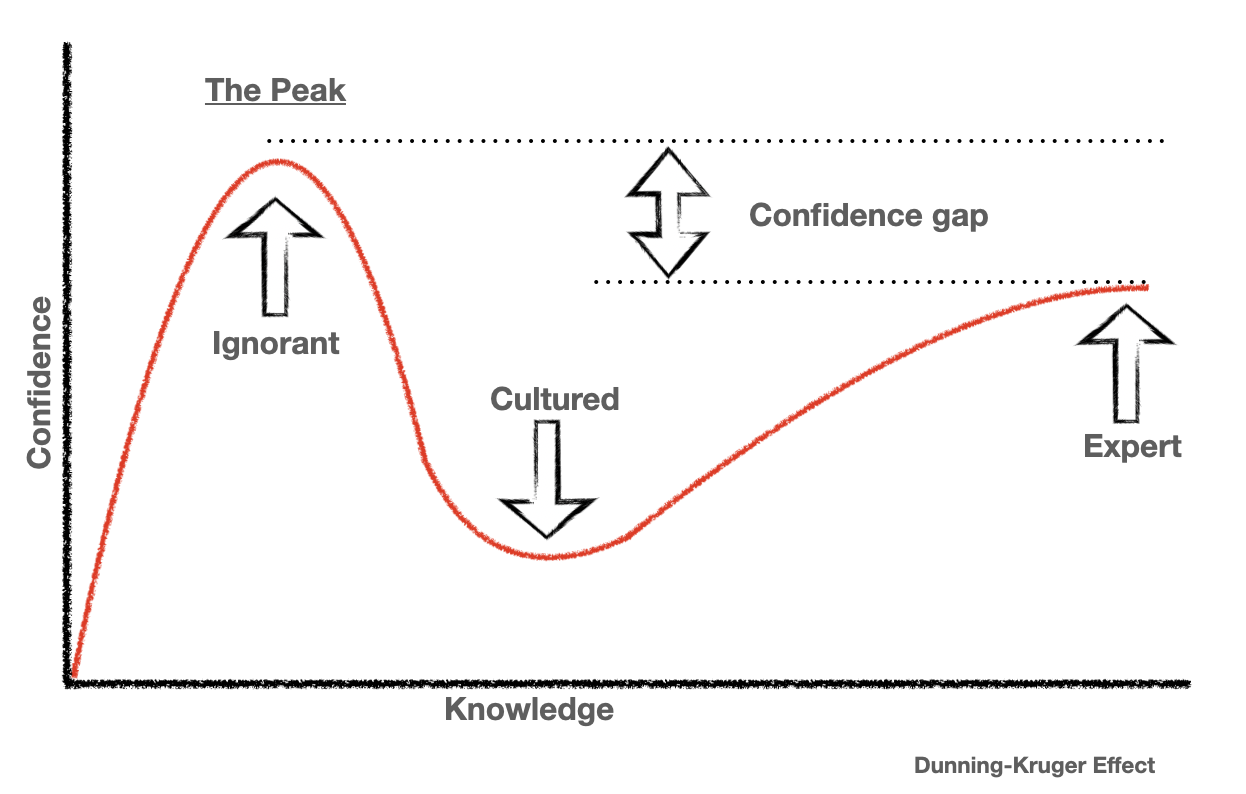Dunning-Kruger Effect
A cognitive bias in which people with low ability at a task overestimate their ability, and people with high ability underestimate their competence.

The Dunning-Kruger Effect is a psychological phenomenon where those who are least competent at a task tend to overestimate their competence, leading to inflated self-assessments. On the reverse, those who are most competent often underestimate their performance relative to others. For example, someone who has just started learning to play chess might think they're better than average after winning a few games, not realizing how much they still have to learn. Meanwhile, an expert chess player might see every minor mistake they make and feel they're not as good as they ought to be.